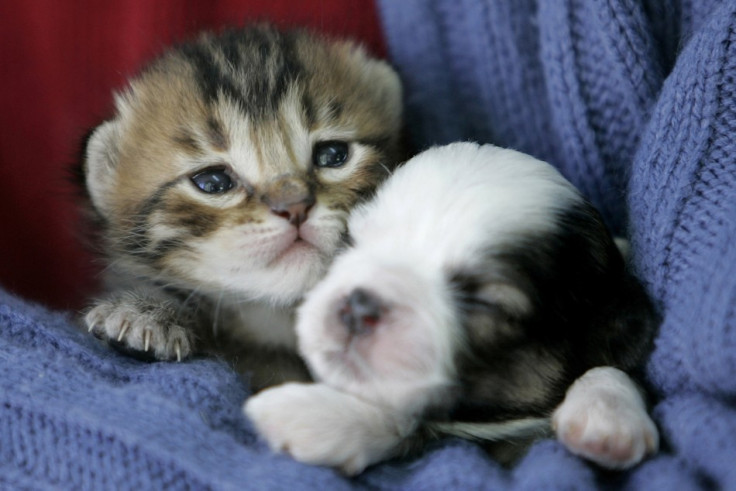Warning: Easter Kills Cats and Dogs

The forthcoming Easter Holiday will be celebrated by millions around the globe, however it can also pose a lethal threat – to pets.
Several aspects of Easter celebrations can have a deadly impact on animals, and charities have issued warnings reminding people to be careful over the bank holiday weekend.
The RSPCA has warned that chocolate is toxic to dogs, and noted many appear unaware of the potentially deadly effects.
Chief veterinary officer James Yeates said accidental poisonings are on the rise: "Chocolate poisoning is one of the most commonly reported types of animal poisoning, so Easter is the ideal time to remind people of the hazards around their home that could accidentally poison their pets.
"Easter eggs are a tasty treat for many of us, but a hefty vet's bill won't be quite so easy to swallow if your pet ends up wolfing them down before you. It isn't just chocolate that is dangerous for animals though. For example, did you know that rhubarb is poisonous to rabbits, or that grapes could kill your ferret?
"There are so many hidden dangers to animals around the home and we want owners to do their homework and keep their pets safe and healthy.

"The main piece of advice to any pet owner is to take their animal straight to a vet if they are worried. Never watch and wait in any case of suspected poisoning. The effects can take hold extremely quickly, so knowing the symptoms and how to respond to them can be the difference between life and death."
The PDSA also noted that half a million people in the UK will feed their pets chocolate this weekend. Senior vet Elaine Pendlebury said the ingredient theobomine in chocolate is the toxic ingredient. High quality dark chocolate is most poisonous, with a small bar able to kill a Yorkshire Terrier.
Melanie McLean, a vet at the US Food and Drug Administration (FDA) told LiveScience how decorations in the home can also be deadly.
Easter lilies are a popular decoration, however, they are deadly to cats who tend to nibble at their petals and leaves. She said cats suspected of eating lilies should be taken straight to the vet, as just a few pollen grains can lead to acute kidney failure.
Symptoms to watch out for include vomiting, frequent urination or ceasing urination altogether. Drooling, lethargy and a loss of appetite are also signs something is wrong.
For dogs, lilies are not generally deadly but can cause gastrointestinal distress.
The RSPCA's list of most dangerous poisons for cats and dogs are below.
Cats:
- Paracetamol
- Lilies (Lilium spp)
- Ethylene glycol –the active ingredient in Antifreeze
- Spot-on flea treatments for dogs – many contain Permethrin; poisonous to cats
- Metaldehyde - in slug/snail baits/pellets
- Decorating materials – e.g. paints, varnishes, preservatives, paint and glass cleaners can contain petroleum distillates; harmful to cats
Dogs:
- Slug/snail pellets
Chocolate - Non-Steroidal Anti-Inflammatory drugs e.g. ibuprofen, naproxen and many others.
Rodent Poisons
Grapes, raisins, sultanas, currants
Vitamin D
© Copyright IBTimes 2025. All rights reserved.






















